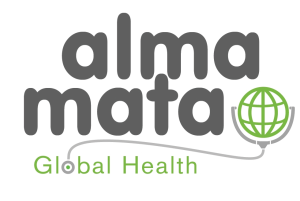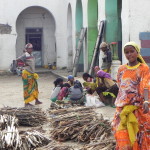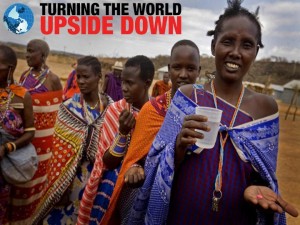The dilemma should be a common one. You’ve completed your undergraduate medical training, gained an intercalated degree relating to Global/International Health and been on elective to a far-flung, exotic part of the world. Your desire is burning to make headway on that ambition to work as a qualified medical practitioner in a small community health centre, cut off from civilisation by everything but a dusty dirt-track or rickety highway to the nearest local hospital.
The evolution and facilitation of such ambitions for UK doctors has led to a recognition that all such trips should be fundamentally questioned in terms of firm ethical considerations. Principle to these is this: are you going to make a sustainable, positive difference to the health and lives of the community you will be serving? While enthusiasm for such a project will be spilling over, most high-profile charities, such as MSF and VSO, require a number of years of postgraduate training before allowing medical workers to work within their projects. This is with good reason, for the very point made earlier in this paragraph. While enthusiasm may be undying, if your skills and experience are not sufficient you may well end up doing little good, or even harm overall to the community you aim to serve, treat and protect.
However, being that bright eyed enthusiast myself, and resisting the temptation to work in such a setting yet for the reasons above, I am aware that we may be peddling attitudes that undergraduates perceive to be restrictive, even unhelpful to encouraging such students with these ambitions. There has, on my behalf at least, been a form of transition from one viewpoint to the other. But none of us who have got ourselves to grades where we are nearly or actually qualified to work as a medical practitioner abroad should forget the frustration of restrictions to ambition, especially when those restrictions are advocated by those who are seen to be working within the field. Perhaps we could be accused of a transition to ’party-poopers’.
We should not forget or neglect this group, who are ideally placed for Global Health work and can be a vital part of building capacity in such settings, for several reasons:
- They are the future in the field of global health. Encouraging their participation is essential to maintaining and increasing UK practitioners.
- They are often more ideally placed in their life – ie unattached, unmarried, without children – than older colleagues, making them more adaptable and easier for them to go abroad.
- Gaining experience of such work at an earlier career stage can accelerate clinical acumen and skills invariably, and make them more useful on return as a more qualified practitioner, with the reflections and past experience of such work.
While all the Royal Colleges, to varying degrees, are taking a lead in facilitating their trainees who wish to work abroad to do so, there are no outlets or official stamps of approval for foundation programme doctors to do the same and no mandate for them to do so within the foundation curriculum. So the recent changes to ‘Tomorrow’s Doctors’ could give the justification for including more global health related objectives within this curriculum.
There are several options and new ideas for this group of doctors. Mentor placements should be considered as a potential way for juniors with inappropriate experience to gain it, ahead of being a fully responsible practitioner. VSO, MSF or other development charities could attach end of foundation or mid-foundation doctors to a full practitioner, relating to their chosen/preferred speciality if necessary for a short period of time – say 3 months. This could be part of 6 month package that would see them do the DTMH or similar course.
There are also countless tales of specialist trainees who took time off for a year/2 years to work abroad on a project of some sort. These include jobs as research assistants or occasionally leading research as a development of undergraduate work, internships at Departments of Health, NGOs or Global Health Institutions such as WHO or UNICEF. On top of this, Educational Development such as Diploma’s or an MSc, with study leave used for such courses or time out being taken between foundation and specialist programmes, have become a regular option within junior trainees. This type of work, background academic and skill acquisition, may be the best way for junior trainees with such interests to feed their development in this area at this stage of their career.
The counter argument to foundation trainees with such interests ‘indulging’ themselves in such projects and ideas is that they should be focusing on developing their core clinical skills at this level, and be undistracted by such ambitions. The latter of these is of course true, although many may venture that these jobs taken on within the foundation programme use these trainees for service provision and do not allow them to develop these skills as intended. Furthermore, these trainees are adults, who have come through a challenging and stimulating undergraduate curriculum, who are perfectly capable of taking focussed initiative in an area where they feel they wish to develop their career.
In summary, I believe there is a case to develop a role for junior doctors who do not have membership exams or 4/5 years experience within the profession to work within low income settings. But in today’s environment, with limited funding within the NHS and our International Development budget not even achieving the paltry 0.7% GDP promised, such ideas are unlikely to be considered practical or implementable. But this is a debate within mentors, academics, doctors and employees within Global Health that is worthy of discussion and development. Who are we to stop the next generation taking it on?









